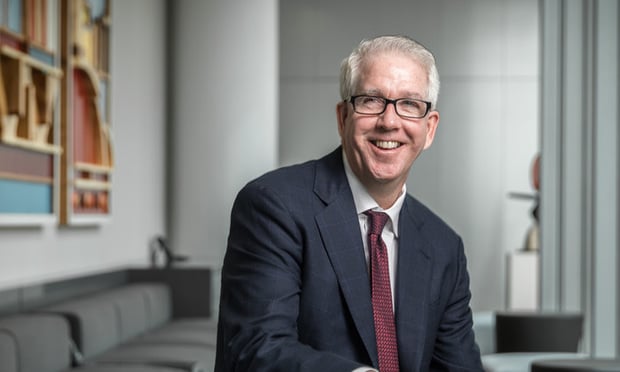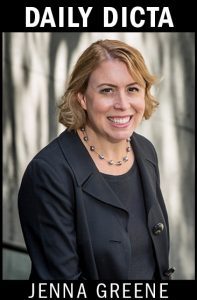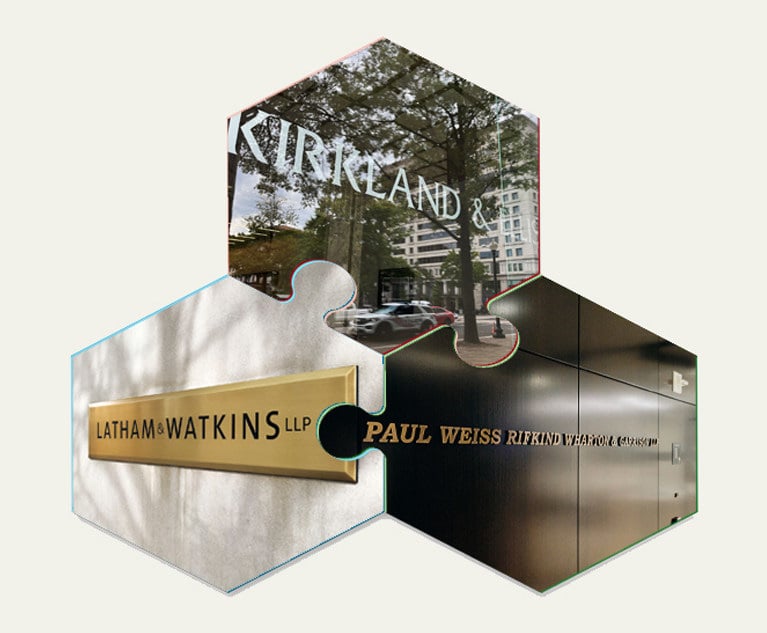Kirkland Makes Push for Plaintiffs-Side Contingency Cases
It's a move that stands to upend the market—traditionally dominated by smaller, plaintiff-oriented shops.
July 10, 2019 at 09:29 AM
4 minute read
 James Hurst. Photo: Todd Winters.
James Hurst. Photo: Todd Winters.
Kirkland & Ellis is making a bold move to dramatically expand its caseload by representing plaintiffs on a contingency fee basis.
“We're betting on ourselves now,” said partner James Hurst. “Truly doubling down.”
On Wednesday, the firm announced it is launching a plaintiffs-side trial group, aiming to “increase by ten-fold or more the number of contingency cases we're taking on,” Hurst said.
No, not the 'Have-you-been-injured-in-a-motorcycle-crash-our-operators-are-standing-by' variety. Nor will Kirkland litigators be bringing class actions or whistleblower suits.
 But the firm sees an opening to scale up its plaintiffs-side contingency work in commercial disputes. It's a move that stands to upend the market—traditionally dominated by smaller, plaintiff-oriented shops—and is also likely to mean more head-on competition with Quinn Emanuel Urquhart & Sullivan, which has long been known for representing plaintiffs and defendants with equal zest.
But the firm sees an opening to scale up its plaintiffs-side contingency work in commercial disputes. It's a move that stands to upend the market—traditionally dominated by smaller, plaintiff-oriented shops—and is also likely to mean more head-on competition with Quinn Emanuel Urquhart & Sullivan, which has long been known for representing plaintiffs and defendants with equal zest.
True, Kirkland has already handled some such cases. Partners Reed Oslan and Mark Premo-Hopkins, for example, just won Litigator of the Week for their $82 million jury verdict in Delaware Superior Court on behalf of Bracket Holding Corp.
“We took a look at the historical results we've achieved on the plaintiffs side over the last one or two decades for plaintiffs, and we've had some huge wins,” said partner Andrew Kassof, who co-led the team that represented Tronox Litigation Trust in winning $14 billion in damages in 2013 against Kerr-McGee in a fraudulent conveyance suit.
Their conclusion: “We don't think law firms need to stay so firmly on one side of the 'v' or the other,” Kassof said. “We want to align our incentives with our clients, and put the full breadth of the resources of the firm behind it. If we don't come through, the clients don't have to pay.”
It's a pitch they anticipate resonating with smaller companies that “wouldn't otherwise think of Kirkland because of our market rates,” Hurst said. “There's a mindset that big firms charge by the hour, full stop.”
“We really do feel it could be market disruptive. For a company that feels they've got a good claim but doesn't want to spend its resources on litigation, what are their options?” Hurst continued. “Suddenly, one option is now arguably the premier litigation shop in the United States. It's an option the market didn't have before.”
As the world's biggest law firm by revenue ($3.76 billion last year), Kirkland won't need litigation funders to bankroll its cases. As Hurst put it, “We're more than capable of financing our own litigation.”
The firm plans on putting in major resources into vetting potential representations, which are likely to include contractual disputes, fraud, trade secrets—“any type of classic commercial dispute,” Kassof said.
Patent cases are trickier. They're “ripe for this kind of work, but the due diligence is difficult,” Hurst said. “It's a lot of work to figure out if a patent is valid,” adding that he's currently handling a large patent case on contingency, though he declined to name the client.
As a bonus, Hurst and Kassof anticipate more of the plaintiffs-side cases are likely to go to trial. The firm's defense-side clients (who are paying by the hour) tend to be risk-averse and shy away from taking their chances in court.
But if Kirkland's money is on the line too? As Hurst put it, “We are so not afraid to take cases to trial.”
We hope you enjoyed this excerpt from Litigation Daily, the exclusive source for sharp commentary on mega court battles, winning strategies and the issues that obsess elite litigators. Click here to subscribe.
This content has been archived. It is available through our partners, LexisNexis® and Bloomberg Law.
To view this content, please continue to their sites.
Not a Lexis Subscriber?
Subscribe Now
Not a Bloomberg Law Subscriber?
Subscribe Now
NOT FOR REPRINT
© 2025 ALM Global, LLC, All Rights Reserved. Request academic re-use from www.copyright.com. All other uses, submit a request to [email protected]. For more information visit Asset & Logo Licensing.
You Might Like
View All

Change Is Coming With the New Trump Era. For Big Law, Change Is Already Here
6 minute read

Trending Stories
- 1After Botched Landing of United Airlines Boeing 767, Unlikely Plaintiff Sues Carrier
- 2DOT Moves to Roll Back Emissions Rules, Eliminate DEI Programs
- 3No Injury: Despite Proven Claims, Antitrust Suit Fails
- 4Miami-Dade Litigation Over $1.7 Million Brazilian Sugar Deal Faces Turning Point
- 5Trump Ordered by UK Court to Pay Legal Bill Within 28 Days
Who Got The Work
J. Brugh Lower of Gibbons has entered an appearance for industrial equipment supplier Devco Corporation in a pending trademark infringement lawsuit. The suit, accusing the defendant of selling knock-off Graco products, was filed Dec. 18 in New Jersey District Court by Rivkin Radler on behalf of Graco Inc. and Graco Minnesota. The case, assigned to U.S. District Judge Zahid N. Quraishi, is 3:24-cv-11294, Graco Inc. et al v. Devco Corporation.
Who Got The Work
Rebecca Maller-Stein and Kent A. Yalowitz of Arnold & Porter Kaye Scholer have entered their appearances for Hanaco Venture Capital and its executives, Lior Prosor and David Frankel, in a pending securities lawsuit. The action, filed on Dec. 24 in New York Southern District Court by Zell, Aron & Co. on behalf of Goldeneye Advisors, accuses the defendants of negligently and fraudulently managing the plaintiff's $1 million investment. The case, assigned to U.S. District Judge Vernon S. Broderick, is 1:24-cv-09918, Goldeneye Advisors, LLC v. Hanaco Venture Capital, Ltd. et al.
Who Got The Work
Attorneys from A&O Shearman has stepped in as defense counsel for Toronto-Dominion Bank and other defendants in a pending securities class action. The suit, filed Dec. 11 in New York Southern District Court by Bleichmar Fonti & Auld, accuses the defendants of concealing the bank's 'pervasive' deficiencies in regards to its compliance with the Bank Secrecy Act and the quality of its anti-money laundering controls. The case, assigned to U.S. District Judge Arun Subramanian, is 1:24-cv-09445, Gonzalez v. The Toronto-Dominion Bank et al.
Who Got The Work
Crown Castle International, a Pennsylvania company providing shared communications infrastructure, has turned to Luke D. Wolf of Gordon Rees Scully Mansukhani to fend off a pending breach-of-contract lawsuit. The court action, filed Nov. 25 in Michigan Eastern District Court by Hooper Hathaway PC on behalf of The Town Residences LLC, accuses Crown Castle of failing to transfer approximately $30,000 in utility payments from T-Mobile in breach of a roof-top lease and assignment agreement. The case, assigned to U.S. District Judge Susan K. Declercq, is 2:24-cv-13131, The Town Residences LLC v. T-Mobile US, Inc. et al.
Who Got The Work
Wilfred P. Coronato and Daniel M. Schwartz of McCarter & English have stepped in as defense counsel to Electrolux Home Products Inc. in a pending product liability lawsuit. The court action, filed Nov. 26 in New York Eastern District Court by Poulos Lopiccolo PC and Nagel Rice LLP on behalf of David Stern, alleges that the defendant's refrigerators’ drawers and shelving repeatedly break and fall apart within months after purchase. The case, assigned to U.S. District Judge Joan M. Azrack, is 2:24-cv-08204, Stern v. Electrolux Home Products, Inc.
Featured Firms
Law Offices of Gary Martin Hays & Associates, P.C.
(470) 294-1674
Law Offices of Mark E. Salomone
(857) 444-6468
Smith & Hassler
(713) 739-1250










